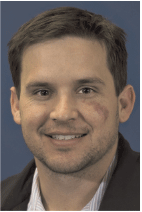Learning from lessons in downhole gauges as part of a well optimisation strategy
Remzi Kaya A , Brandon McCowan A and Melodi Kaya ACS Gas Pty Ltd.
The APPEA Journal 55(2) 484-484 https://doi.org/10.1071/AJ14119
Published: 2015
Abstract
Downhole gauges are designed to operate in a harsh working environment and are commonly installed in conjunction with a progressing cavity (PC) pump. They measure the pressure at or slightly above the PC pump and, along with a casing pressure gauge, they can be used to measure the fluid level in the well.
An understanding of the fluid level in a well allows the operator to control the well drawdown process and protect the PC pump if it is installed with a well optimisation system that can maintain the desired water level or stop the pump if required.
Downhole gauges provide valuable data for reservoir analysis and well planning, especially for low-perm coals. They are often criticised for failing, but root cause analysis often finds that failure is not the gauge, rather it is caused by other components of the well completion.
This extended abstract discusses the operational experience and analysis of operating downhole gauges across a 10-year period while working with several gas companies in Queensland, NSW and China. In these locations different cable-type downhole gauges, such as a low-density polyethylene (LPDE) sheathed, armoured cables and solid tubular stainless steel cables, were fixed to the tubing. This knowledge can extend the working life of downhole gauges and help operators develop well optimisation strategies.

Remzi Kaya has a BSc in petroleum and natural gas engineering. He has worked as drilling and production operations engineer, drilling fluids engineer, reservoir engineer and field services engineer in Turkey, Russia and the Caspian Sea region. He provides a sound knowledge of industry practices and considers safety, quality and efficiency in the CSG industry. Remzi offers conventional oilfield experience in developing effective site installation plans to manage field rollout, commissioning and maintenance projects. Member: SPE and Chamber of Petroleum Engineers (PMO), Turkey. |

Brandon McCowan has been involved in the coal bed methane and coal mine methane in Australia and overseas for 15 years. He is now a consultant for CS GAS and Select Energy across multiple disciplines in the CSG industry. He is a non-executive director for multiple industry service companies specialising in EPC services, PLC and SCADA software supply, skilled labour hire and consulting. |

Melodi Kaya is a process engineer with a BSc in chemical engineering, who has experience in aspects of process modelling, equipment sizing and proposal documents preparation. She has been working on CSG projects for the last two years, providing process engineering design input to detailed design of CSG pilot well facilities, including retrospective process hazard analysis of existing gas plant, field well sites and water treatment facilities. Melodi’s other skills include project engineering with an analytical approach to her work and teamwork skills that provide an understanding of how to achieve a common goal as a team. Member: SPE. |


